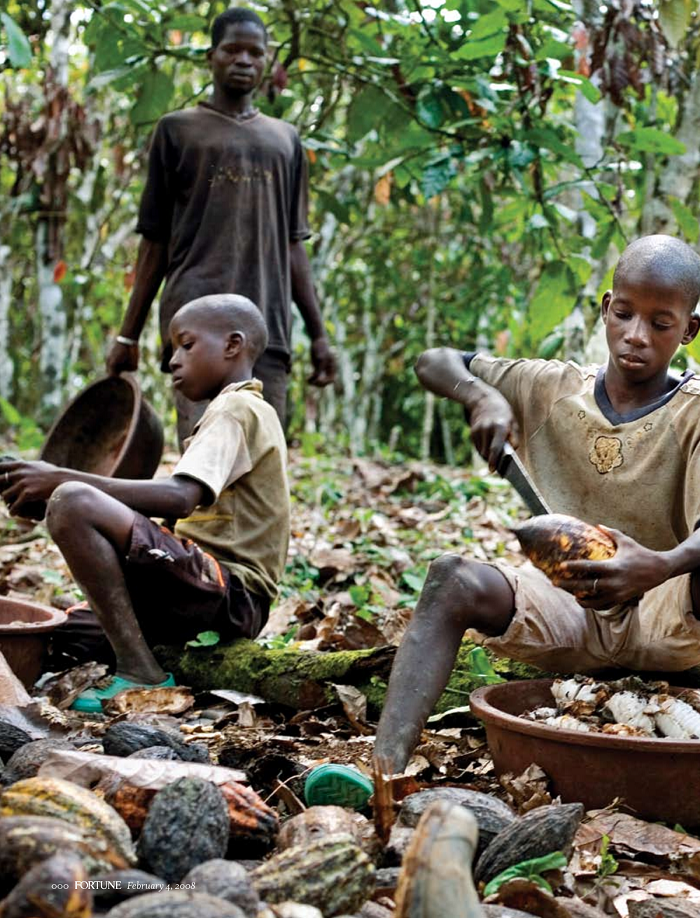Nestlé SA is being sued after losing its bid to throw out a case, which accuses the company of using child labourers for its chocolate products. The company is in court, along with two major food companies, on the charge of being implicated in child slavery in Ivory Coast and will, therefore, face a lawsuit in the United States.
This recent development by the US Supreme Court backs a 2014 ruling by the 9th Circuit Court of Appeals that also rejected Nestlé’s bid to throw out the lawsuit against them. The legal action against the world’s leading food maker is a decade-long one which was filed by three people in 2005.
The plaintiffs claimed that they were smuggled from Mali as children and forced to work harvesting cocoa beans. According to them, in addition to the company’s knowledge of the issue of child slavery in the region, they also carried out human rights violations by offering some form of ‘assistance’ to local farmers which helps them purchase cocoa at a cheap rate.
As the world’s leading supplier of cocoa, over 60 percent of Ivory Coast’s export revenue comes from the chocolate bean. Unfortunately, as the chocolate industry has grown over the years, so has the demand for cheap cocoa, leading to an increased price competition amongst cocoa farmers. As a result of this, with a meagre income of about two dollars daily, farmers resort to the use of child labour, without pay, to enable them supply cheap cocoa to big companies like Nestlé.

“An estimated 200,000 children are working the cocoa fields in Ivory Coast to create the chocolate delicacies enjoyed around the world,” a report said.
But how do foreign citizens seek redress in the United States for a crime committed outside the country? The Alien Tort Claims Act (ATCA) grants jurisdiction to US Federal Courts over civil actions by an alien (foreigner) for a tort only, committed in violation of the law of nations or a treaty of the United States. On this account, the US Supreme Court rejected the dismissal of the case, noting that the plaintiffs succeeded in proving that the companies violated the universal prohibition against slavery.
The suit is suggests that the ATCA can become a powerful tool to help increase corporate accountability to supply chains and make amends for victims of human rights violations outside of the US.
Activists welcomed the decision of the Supreme Court, while admitting that it may take quite some time for any significant change to be made as regards the issue of ‘cocoa child slavery’ “due to the nature of large corporations.” “Every time you eat their chocolate you are benefitting from child slavery,” said Patti Rundall, Policy Director at campaign group, International Baby Food Action Network.








